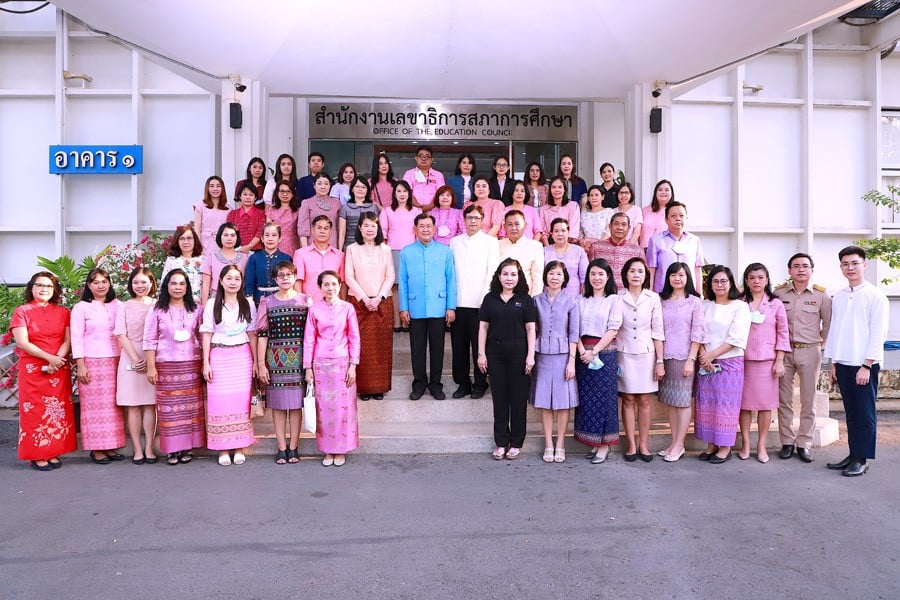Seminar on “The Future of Thai Education in the Disruption Era” to Celebrate the 62nd Anniversary of the Establishment of the OEC
February 15, 2564 BE - The Office of the Educational Council (OEC), celebrated the 62nd anniversary of its establishment as the “Aide of the National Education”. The OEC is one of four main government agencies under the supervision of Thailand’s Ministry of Education, and is responsible for formulating educational policy and standards.
To mark this important occasion, the seminar began with religious ceremonies attended by the current Secretary-General of the Education Council (Dr. Umnath Vichyanuwat), Deputy Secretary-Generals of the Education Council (Dr. Ausanee Thanosawan and Dr. Perasuk Rattana), Advisor on Educational System (Mr. Sawat Phuthong), and Assistant Secretary-General (Mr.Komkrit Chankajon) together with former Secretary-Generals of the Education Council, OEC executives, officials, and all its staffs.
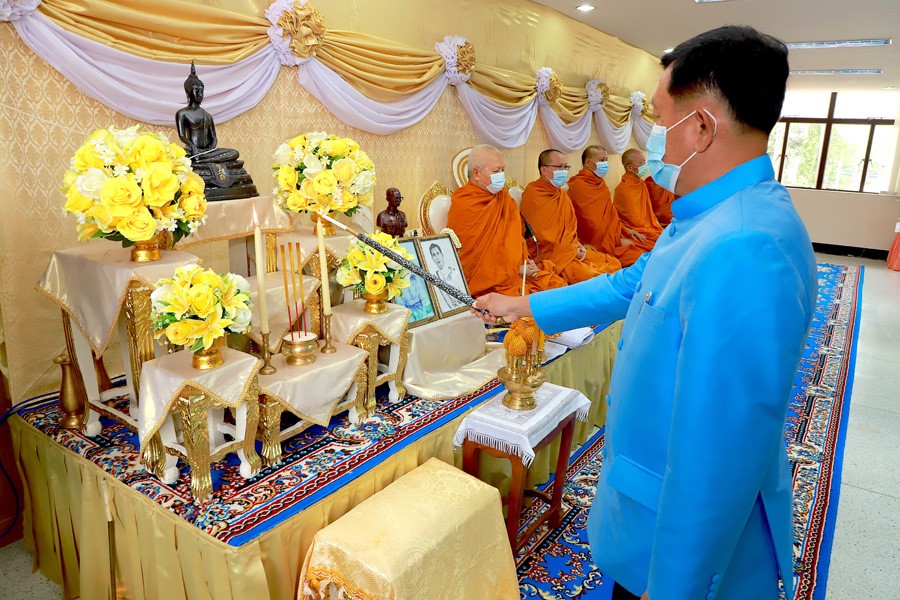
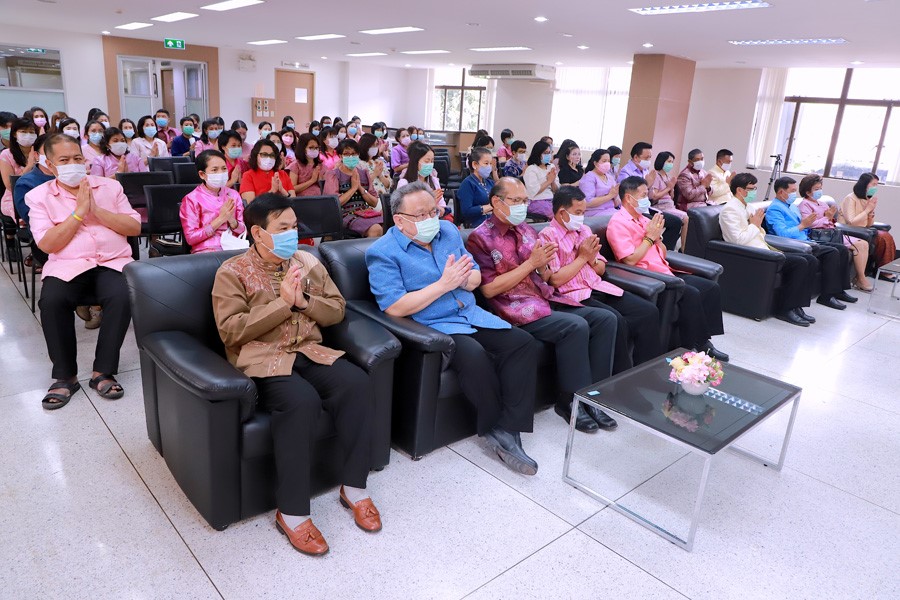
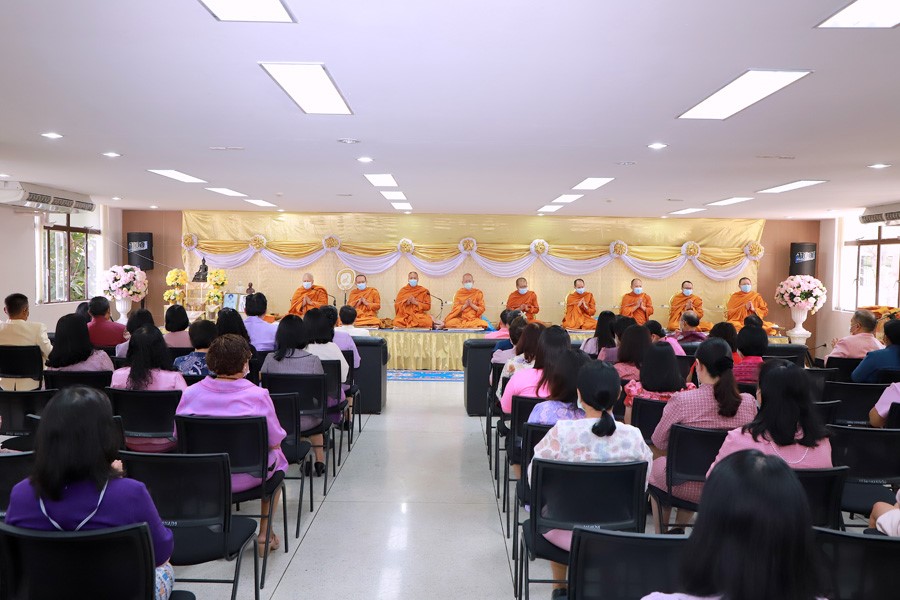
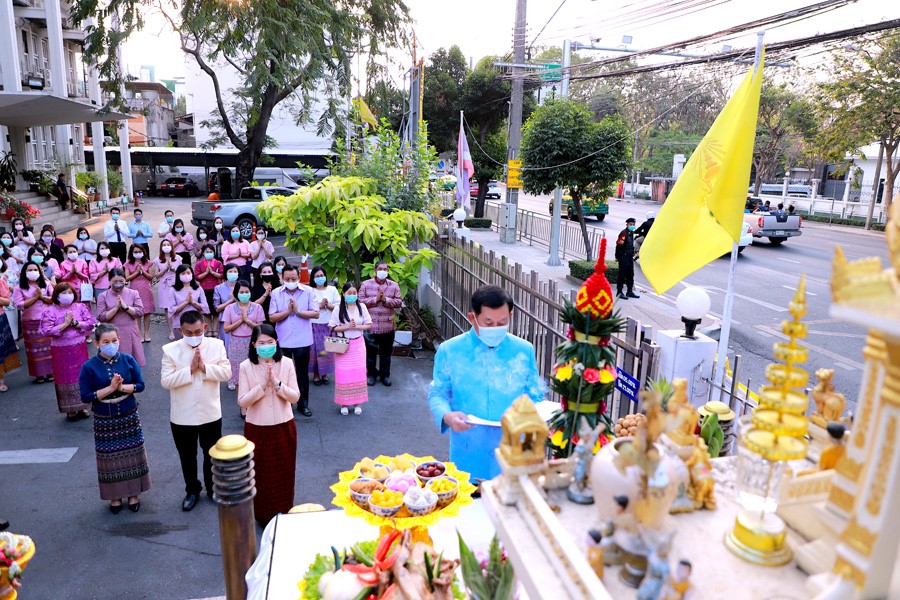
After the religious ceremonies, the OEC special seminar on “The Future of Thai Education in the Disruption Era”, chaired by Dr. Umnath Vichyanuwat, was held at the Kamhaeng Balankura Meeting Room, on the 3rd floor of the 56th Anniversary Building. The invited panelists included Adjunct Professor Tongthong Chandransu (the 8th OEC Secretary-General), Dr. Kamol Rodklai (the 14th OEC Secretary-General), and Dr Chaiyosh Imsuwan (former OEC Deputy Secretary-General). This special event was organized to strictly follow the New Normal measures on social distancing for preventing the spread of the COVID-19 pandemic. It was also broadcast live online through Facebook: “OEC News สภาการศึกษา” in order to spread awareness and share knowledge with audiences who watched the seminar from all over the country.
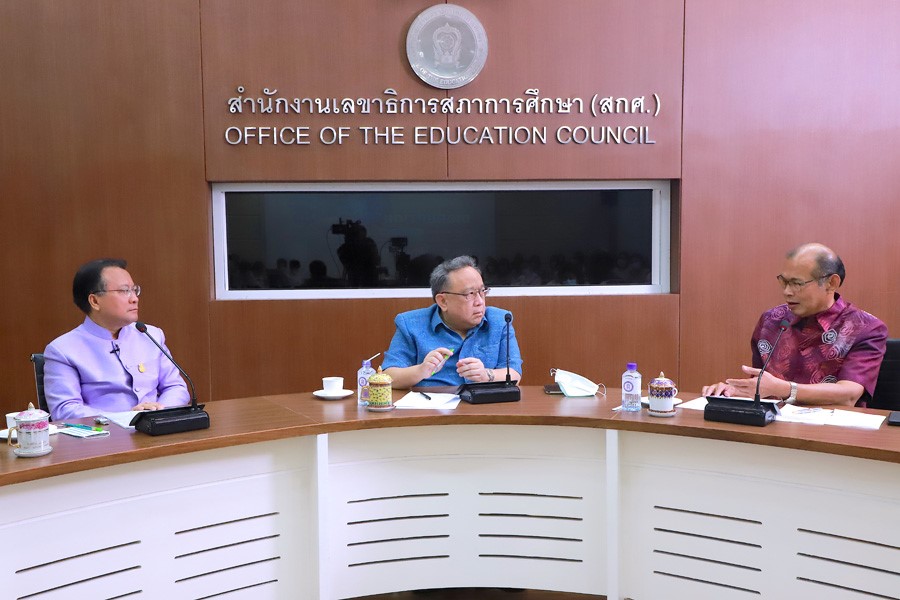
Dr. Umnath Vichyanuwat, the current Secretary-General, pointed out that the OEC is moving toward its 63rd anniversary during the transition to the Digital Era and under the preventive measures necessitated by the corona virus disease (COVID-19) pandemic. He emphasized that the OEC is committed to strengthening its organization and to increasing the potential of the OEC to be the front line for national human resource development policy.
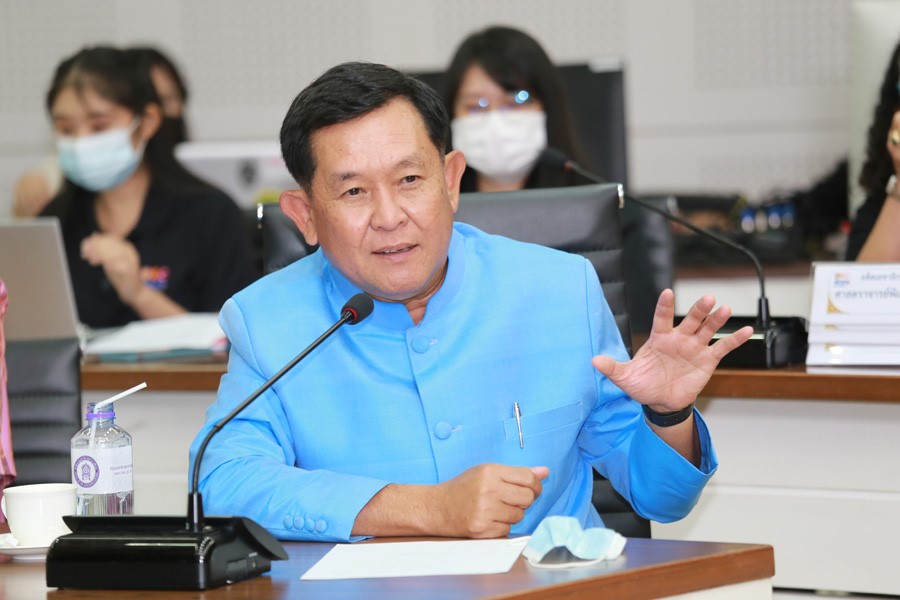
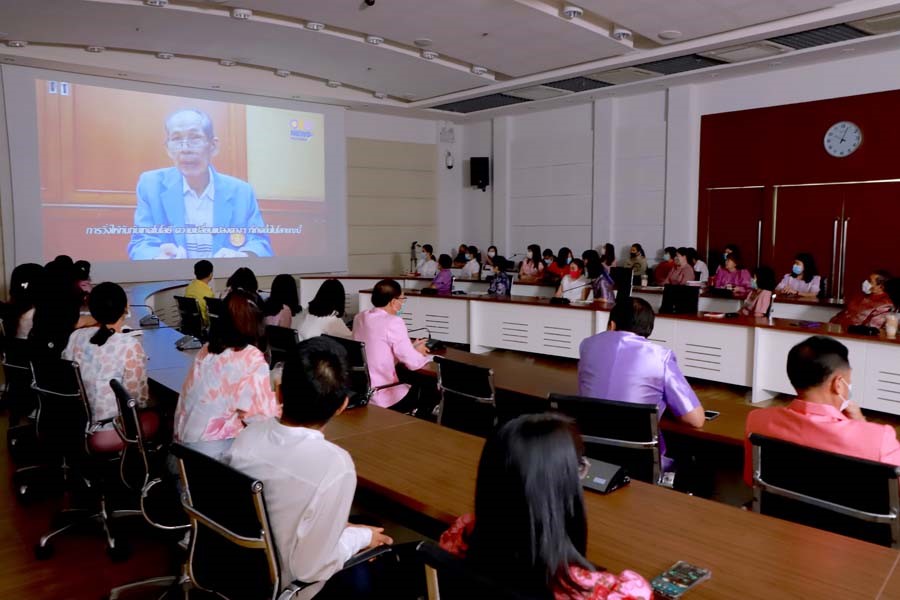
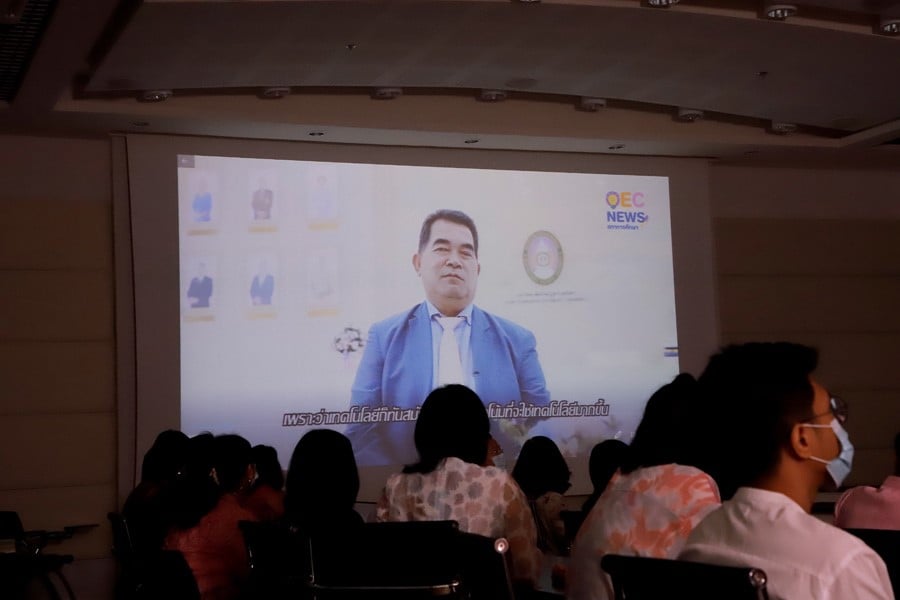
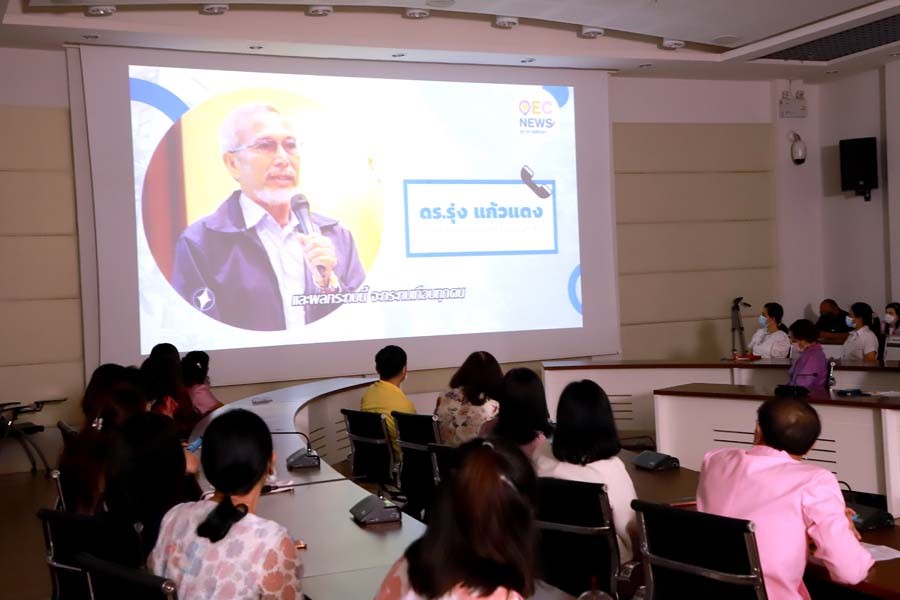
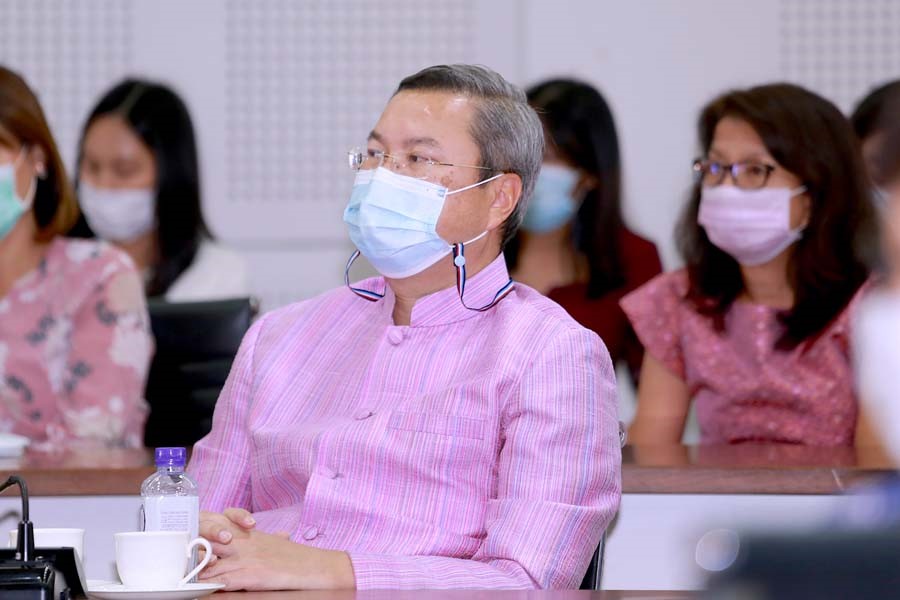
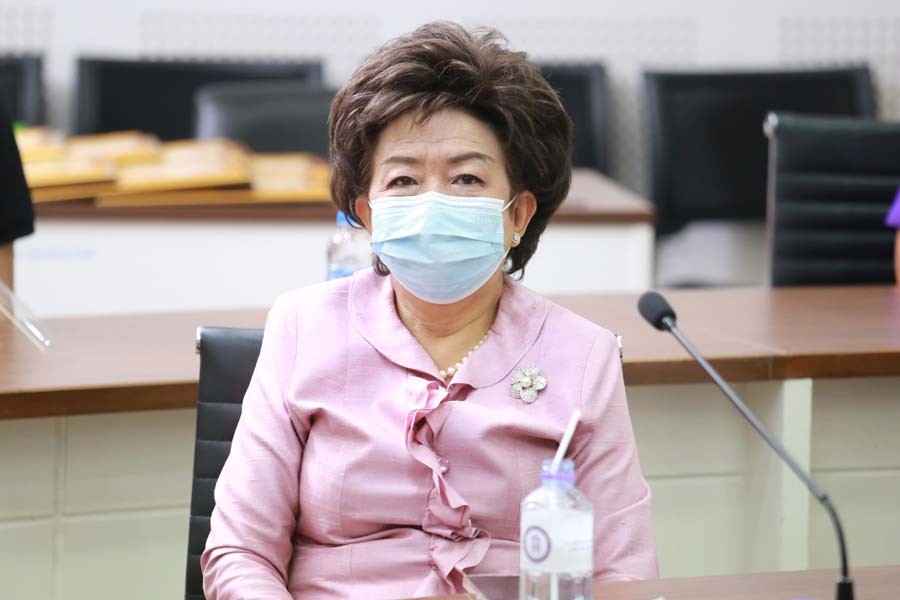
He added that education is a tool for developing Thai people and the quality of our country. Thus, every person and every organization play an important role in this development. Different and clear opinions in the collaboration process will lead to unity. The OEC has been transitioning to the New Normal of education by focusing on providing direction for developing the quality of people that will enhance the quality of the country. He said that the OEC had expanded the New Normal learning system through cooperation with both public and civil society sectors in order to design educational innovations that are responsive to the lives of people and a dynamic future. He then also invited all sectors to join the drive for Thai national education development. He stated that the OEC is ready to listen, to work, as well as to learn together with all sectors for the purpose of educational policy development and educational reform.
The first panelist, ADJ Professor Tongthong Chandransu said that we need to interpret the meaning of ‘disruption’ considering all dimensions. The definition of ‘disruption’ has a broad and comprehensive meaning interruption by radical changes. This is not only technological change, but the change of everything relevant to education, including changing basic concepts. For example, the word ‘classroom’ does not mean only a square room for studying because today knowledge spaces are not limited and should not be restricted. We can search them out everywhere.
At present, children can learn from things all around them. Therefore, the means of providing learning materials and education must change. ADJ Professor Tongthong added that during the time he was Secretary-General of Education Council, he realized that people generally considered the Ministry of Education to be like ‘a Big Pot of Medicine’ and believed that it was the only center of all knowledge. In reality, the dimensions of learning have already changed. For instance, learners do not need to know everything, but they need to learn more about the things around them and in their communities. The time frame of learning should no longer be set as only the 8 hours in school because students can learn anywhere and anytime out of school. The New Normal Learning methods can provide both learning at schools(onsite) and learning online from home (online) due to more open access to learning. He also suggested that educational curriculum must be improved in accordance with the needs of learners.
In addition, we must listen to the users of education curriculum and change our mindset. ‘Teachers’ also need to learn about the world around them: ways of living, societies, economies, environments, etc., and need to support and facilitate their student’s learning. The achievement of teachers is that ‘learners’, their students, have developed to their full potential, gained the ability to wisely manage their continued learning and thrive in their lives. Both the educational system, and the production and development of teaching staff need to be changed. For instance, students completing the bachelor’s degree of education need to adjust themselves to the social realities of the New Normal Learning systems. Specifically, we must break down the wall of monopoly in the teaching profession by opening wider opportunities for graduates from other faculties to become teachers, not only graduates from the Faculty of Education.
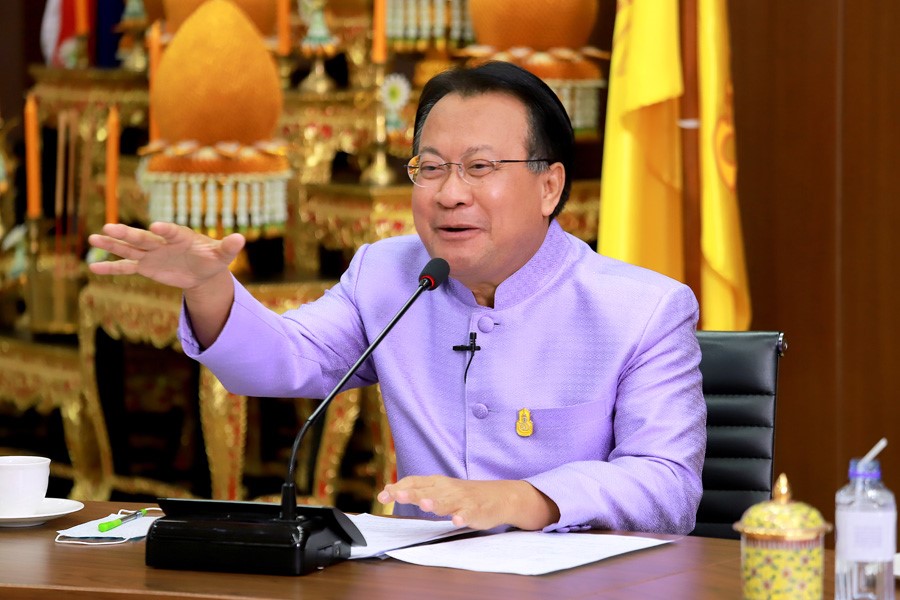
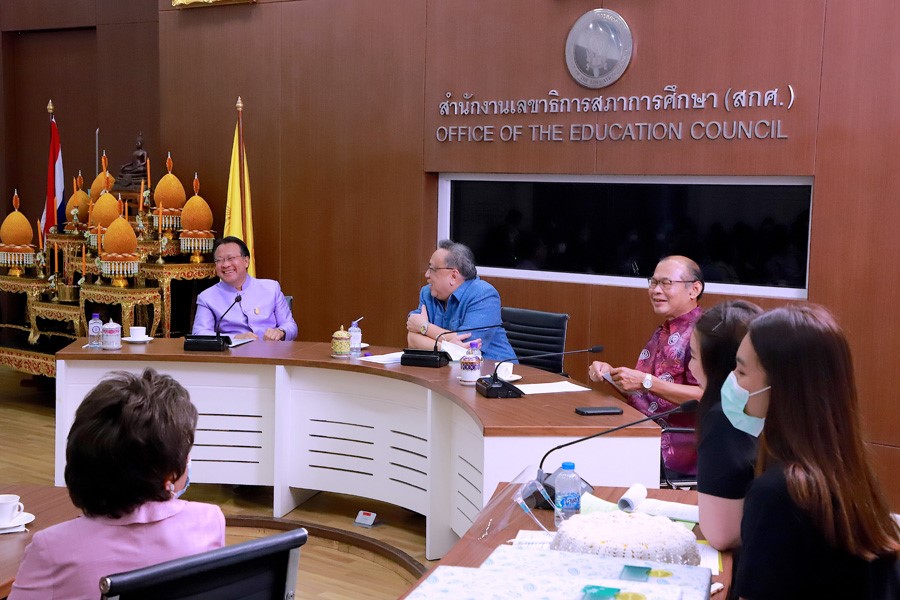
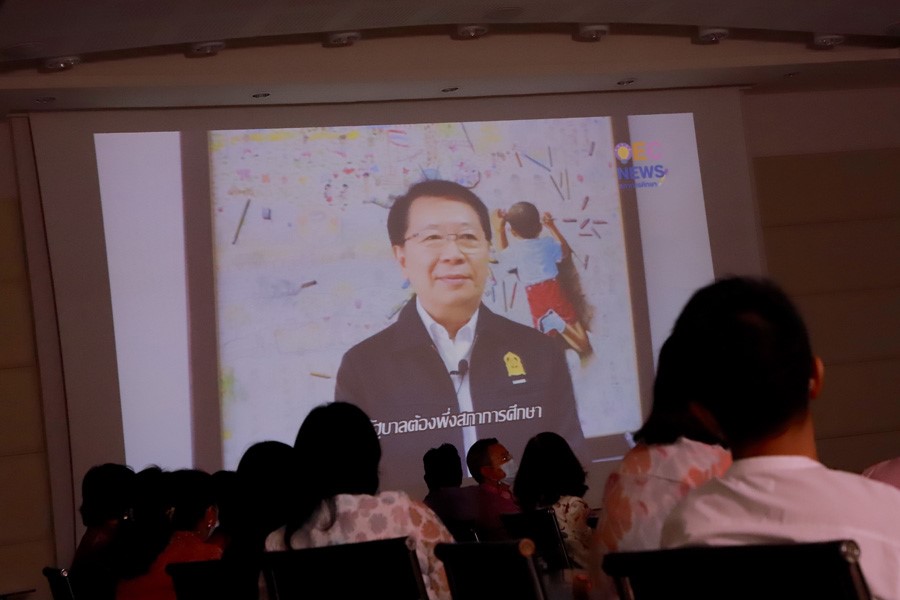
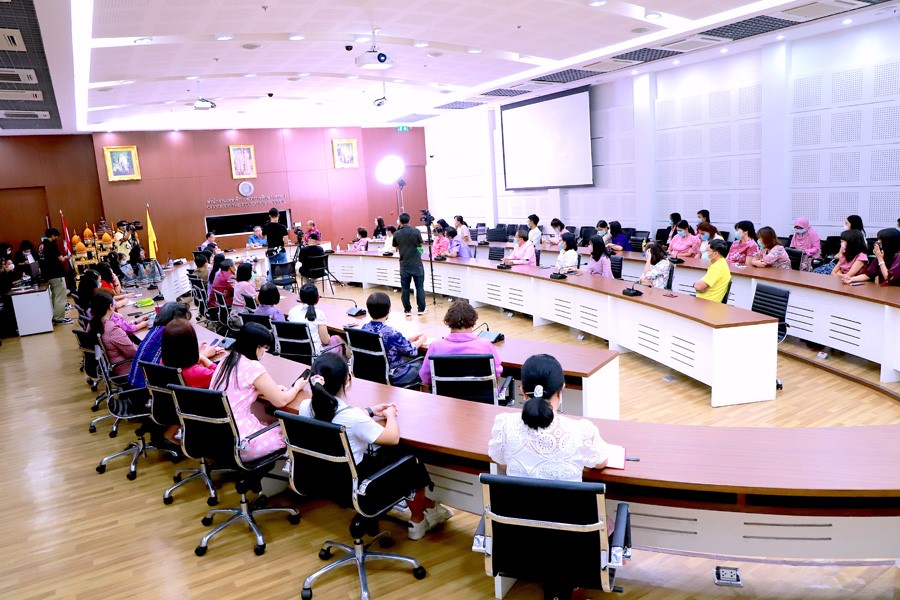
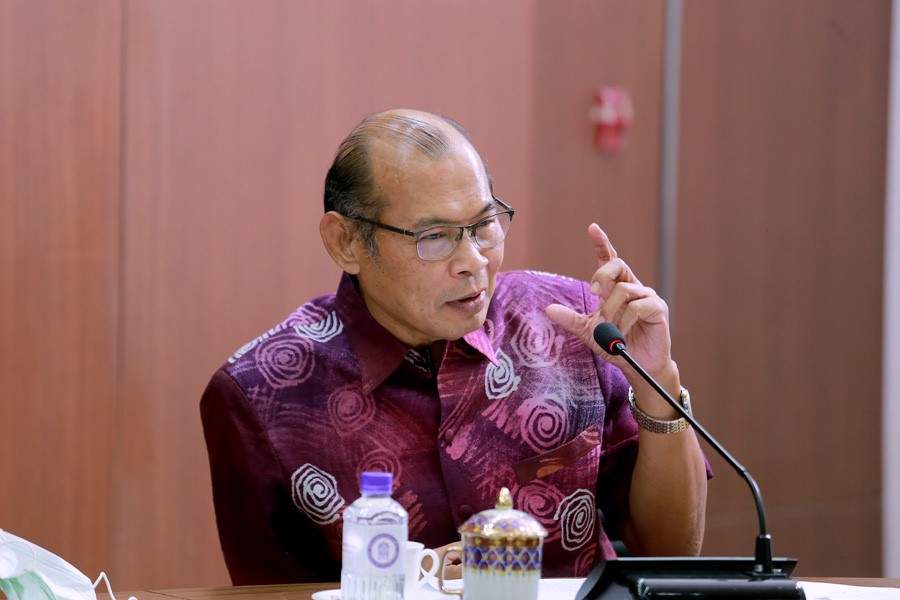
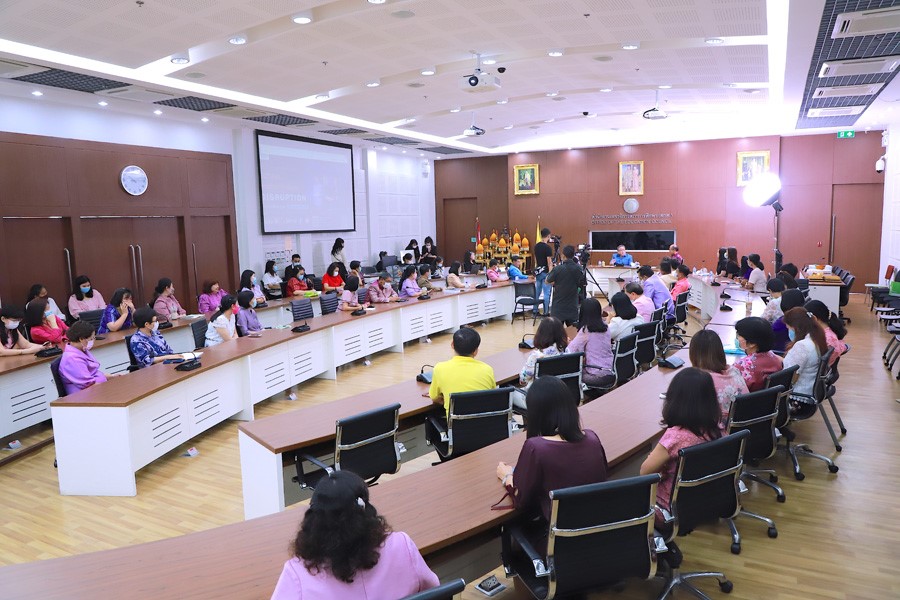
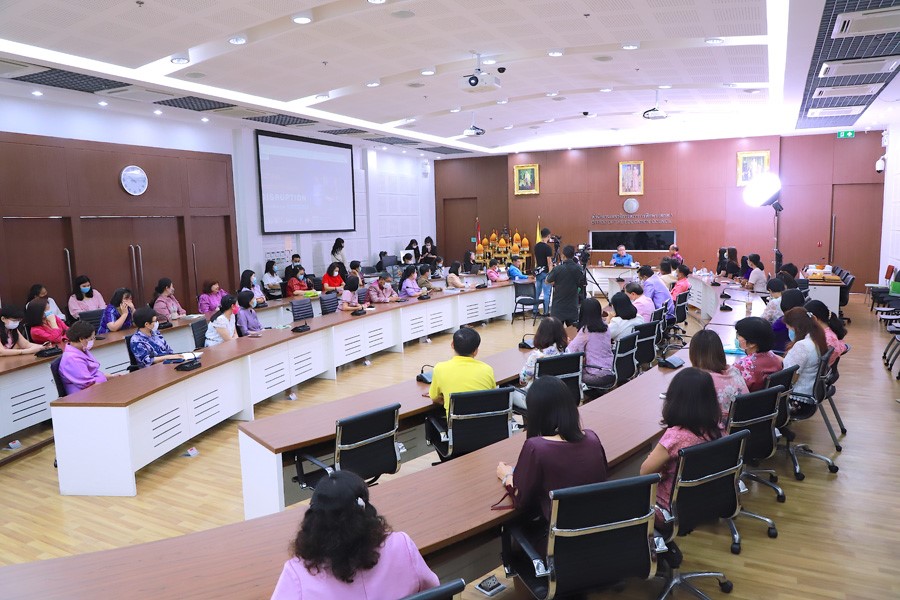
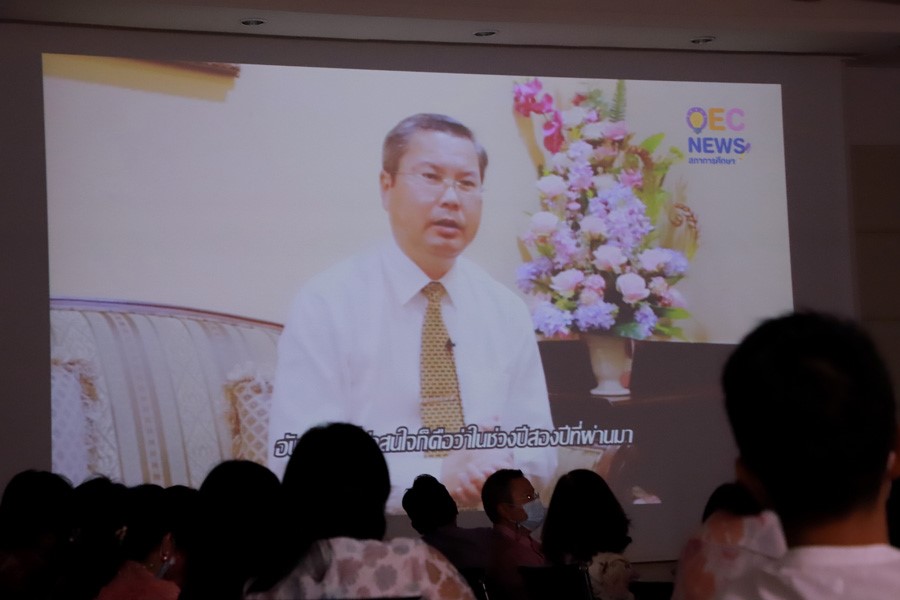
The demographics of the Thai people have also changed; the birth rate has tended to decrease year by year while global competitiveness has steadily increased. Recognizing this, we need to aim to have efficient provision of education in Thailand. With regard to this need, we have had the policy of merging small schools for a long time, but it has not yet reached its goal of strengthening the quality of education.
As another aspect of the political perspective on social transition, ADJ Professor Tongthong added that the former rector of Thammasat University, Prof. Dr. Surapon Nitikraipot, has referred to three age groups: 1) People aged 50 years and over who are happy with things as they used to be and they do not want any change; 2) People aged between 31 to 49 years are busy establishing themselves, focusing on working hard to build their own family, but are not interested in other situations happening around them; 3) Meanwhile, people aged 30 years and below have quite different opinions from the other two age groups. They are trying to create universal expectations about changes that must be made in order for their dreams to come true.
Therefore, it is essential for educational management in the new era to acknowledge and understand the differences between these perspectives towards development goals. For example, the atmosphere of schools has changed. Social media such as Twitter and Facebook have become communication channels which reflect the thinking of new generations therefore, we should keep an eye on these communications. It is crucial to be aware of and learn about various things including the world landscape which has already changed. The political and economic competition between the most powerful countries like the United States of America and China has changed the world as well. Consequently, education must keep pace with these changes.
In the overall context of Thai education, there are many significant parts such as teachers, curricula, and educational management and many more questions which arise. Why is it that only the issues on educational structure and system administration are discussed? In that respect, the OEC must consider some big problems; for instance, concerning the curriculum which was implemented almost 20 years ago in 2003 (2546 BE.). It is already out of date and needs to be changed to keep abreast of the times to deal with the situation of the modern world. Due to the advancements of online learning and AI (artificial intelligence) classrooms today do not need to be frozen in the past 50 years ago. Furthermore, educational transition is not for the rote learning of information, but for the development of learners to their full potential.
Finally, ADJ Professor Tongthong concluded that each learner has different abilities and dreams, so they should be empowered by access to opportunities for extensive knowledge. There are some challenging problems; one complaint about the current ‘national curriculum’ has been that students were not taught to be entrepreneurs but employees. Parents want their children to fulfil their parents’ dreams, even while their children do not yet know what they would like to be or what job they would love to do. As we know that some careers that will be available today and in the future are different from those of the past, so we need to create new mindset for students such as ‘thinking outside the box’ and ‘opening opportunities to receive new ideas. And we need to support extensively scholarships and educational resources which truly meet the needs of students.
The second panelist, Dr. Kamol Rodklai, said that the OEC is known as the wisdom of national education, that they work together with lots of experts, scholars, academics and educators who are knowledgeable and honorable. He also wanted to share his political opinions due to his experience as an advisor to a former Deputy Minister of Education. The point is the expectations and perceptions of Thai society regarding how national education should be. He suggested that three main educational problems should be considered for the future of Thai education.
1) Thai society no longer feel that they can depend on educational providers, because everyone must manage their own education. Even graduates cannot find employment unless they have passed an internship experience. The reason is that a graduate who has no experience through an internship will not have working skills. In addition, society no longer has confidence in the traditional curriculum, teaching and learning. Despite the online learning provided because of the situation of the corona virus (COVID-19) pandemic, this technology has not been used effectively. For example, due to the lack of a support network, teachers are unable to effectively use digital media because they have insufficient knowledge of both the contents and the methods for teaching and learning online. Besides that, the fact that the vision for education in Thailand is not clear enough has affected confidence in the educational system. Moreover, officials often choose to only do some of the work. And the most important point is that the national education plan is still unable to drive Thai education in the desired direction due to the lack of an explicit means for implementing plans into action.
2) Technological transitions and the impact of the COVID-19 pandemic have changed the word ‘classroom’. It is not just a square room anymore due to the connected world in which learners can learn anywhere and anytime through online communication systems. While the pandemic of the COVID-19 has impacted poverty and the closing of schools throughout the world, at the same time and students have had to learn how to learn by themselves.
3) In general, the definition or image of ‘education’ has been changed from what it was in the older generation’s time. In traditional education, students needed to study in school, but today they can learn anywhere from online programs of world-class universities from all over the world. It is not necessary to study at a specified time in some subjects since students can independently arrange their own time for studying.
Dr. Kamol said, “The present educational system is still rigid and too traditional. No one dares to change it. Consequently, the quality of education has not really been improved. To make it better, learning through practical experience is more appropriate. It’s time to make changes to our education system, and in particular, both teachers and administrators need to create a new mindset which can help keep pace with the Disruption Era.”
As for the future scenario of educational policy, Dr Kamol suggested that the role of the OEC be to accelerate forward movement of educational change and improvement in 4 areas:
(1) Creating a fully democratic society by listening to public opinions, trying to directly respond to their points of need and providing fair access to a thorough education, as well as setting a clear vision on national education.
(2) Revising the national curricula at all levels of education, starting from the basic education level; upgrading key skills in vocational and higher education levels in accordance with the country’s development; and building an innovative and learning society to drive the country’s development.
(3) Promoting and create real educational innovations based on the OEC’s research studies: the National Qualifications Framework (NQF), Credit Bank system, and Online Learning Platforms; And producing modern instructional media that really works and will have an impact.
(4) Accelerating the development of the entire educational management process; encouraging engagement and collaboration from all sectors to together be able to drive Thai education in the same direction; and setting the national agenda to impact and change all educational systems.
Finally, the third panelist, Dr Chaiyosh Imsuwan, clearly concluded that education is for human development in response to the potential and needs of the people. Educational sectors concerned must provide more opportunities for in depth learning. Education should be for creating careers that correspond to the peoples’ means of living. Everyone needs to become involved in thinking, acting and gaining benefits. The voice of every child, parent, and teacher should be heard. Educational administration and management should be decentralized, and powers transferred to local communities. All levels of curriculum should be revised based on the development of learners’ competencies. Learning models must be diverse because there is not only one knowledge set that is the best one. Traditional attitudes should be changed according to the information available and practical experiences gained. Self-design of learning should be promoted. All the above mentioned are key starting points for gaining many benefits from the Disruption Era to be used for the improvement of future education. On this occasion, the OEC is pleased to accept all useful suggestions in order to drive educational reform forward without limitations.




